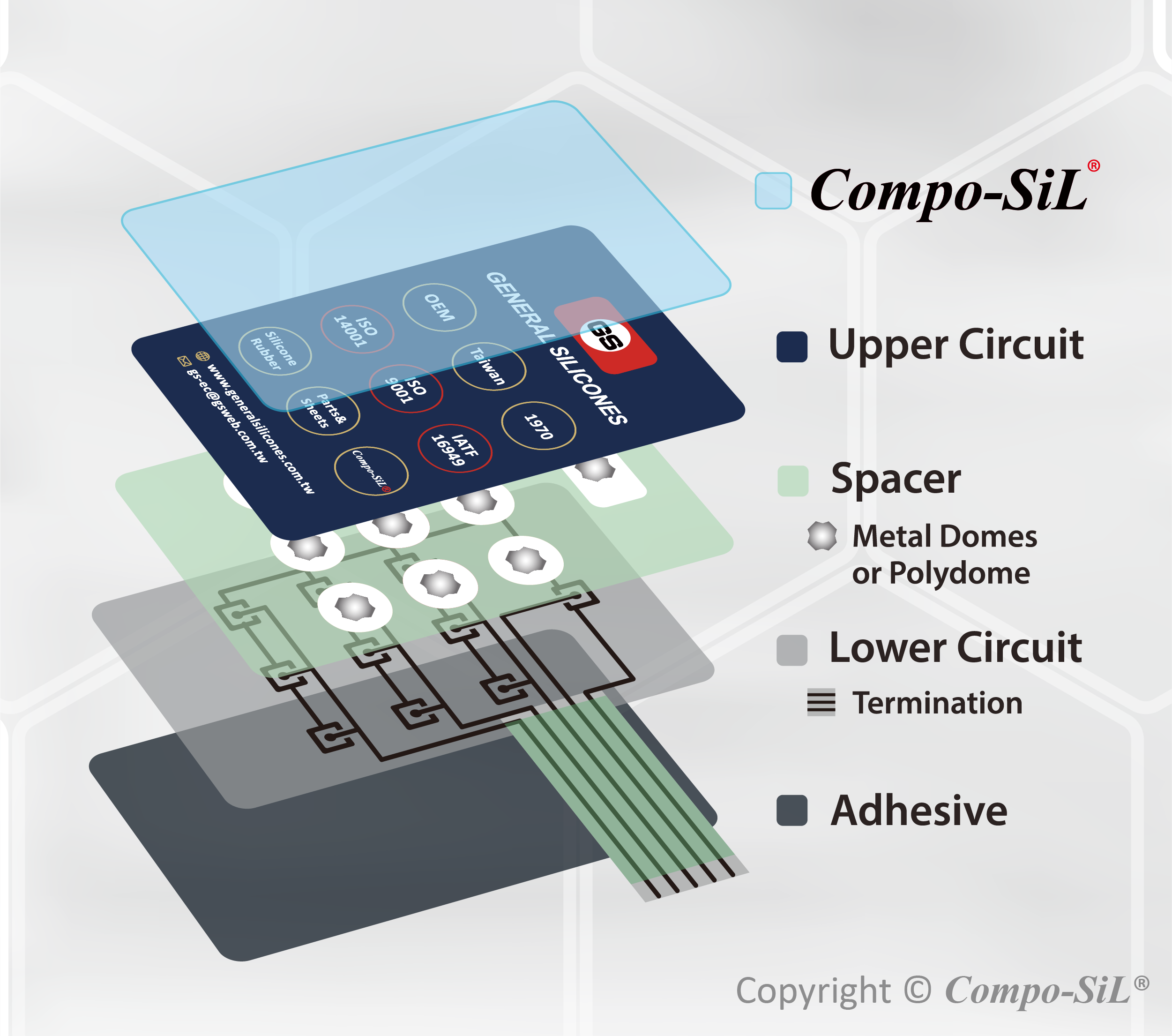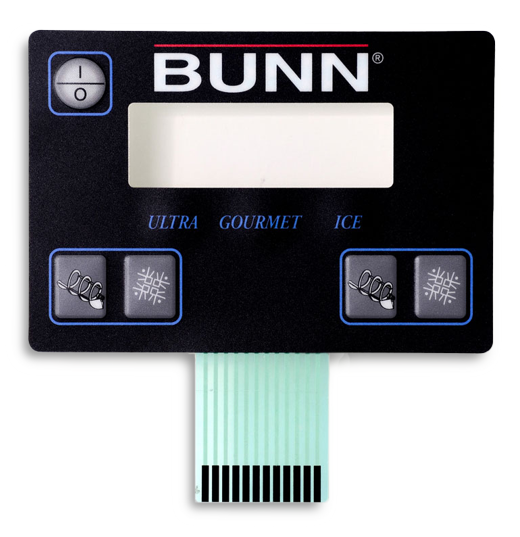The Role of Membrane Switches in Enhancing Product Aesthetics
The Role of Membrane Switches in Enhancing Product Aesthetics
Blog Article
Comprehending the Value of Membrane Switches in Interface
Membrane buttons are essential parts in the layout of efficient customer interfaces, assisting in not only functionality however also enhancing visual charm and user communication. As we check out the future fads and numerous benefits linked with Membrane technology, it comes to be clear that these buttons are more than just elements; they stand for a convergence of development and functionality.
What Are Membrane Buttons?

The spacer layer, which has glue buildings, permits the separation of the circuit layer from the overlay, making sure that the button stays in a non-activated state until pushed. When stress is related to the overlay, it compresses the spacer layer, bridging the space and completing the circuit in the underlying layer. This style not only reduces the physical area required for typical mechanical buttons yet likewise enhances the durability of the device, as Membrane buttons are usually immune to dirt, moisture, and various other environmental factors.
Generally discovered in applications varying from consumer electronics to clinical devices, Membrane switches are important to modern innovation, offering a user-friendly and effective interface that lines up with contemporary style requirements.
Benefits of Membrane Switches
While countless switch modern technologies exist, Membrane Switches deal distinct benefits that make them specifically desirable in numerous applications. One of the main advantages of Membrane switches is their small design, which enables space-saving executions in devices where realty is restricted. Their thin profile not just boosts aesthetic charm yet also assists in light-weight construction.
One more substantial benefit is their resistance to environmental elements. Membrane buttons are typically sealed versus dampness, dirt, and contaminants, making them optimal for usage sought after environments, such as clinical gadgets and industrial devices. This sturdiness prolongs the life-span of the button, minimizing maintenance expenses and enhancing integrity.
In addition, Membrane buttons can be customized to fulfill certain design demands, including distinct graphics and colors that enhance user interaction. Their responsive feedback choices can also be customized to provide a gratifying customer experience. In addition, Membrane buttons are economical, particularly in high-volume applications, as they can be generated successfully.
Applications in Numerous Industries

In the consumer electronic devices market, Membrane buttons prevail in devices such as microwaves, cleaning devices, and remotes. Their responsive feedback and visual options boost individual experience have a peek at this website while providing a smooth, modern appearance. Additionally, auto producers make use of Membrane buttons in dashboard controls and infomercial systems, where space is restricted, and user interaction is critical.
Additionally, the industrial market leverages Membrane switches in control panels for equipment and equipment, enabling intuitive operation in usually severe settings. Their resistance to chemicals and moisture makes sure long life and reliability in these applications. Generally, the adaptability of Membrane Switches adds considerably to their extensive usage, making them essential in different technical domains.
Design Factors To Consider for Membrane Buttons

When making Membrane switches, several essential factors to consider need to be considered to ensure optimal functionality and individual experience. The selection of products is important; picking sturdy, high-grade substrates can enhance the switch's long life and resistance to ecological variables such as dampness and temperature level changes.
Secondly, the design of the visuals overlay need to prioritize clearness and ease of usage. Symbols and message have to be understandable, and the design ought to facilitate instinctive interaction (membrane switches). Furthermore, tactile comments is necessary; incorporating a responsive dome or other devices can improve the customer experience by providing physical verification of activation
One more important variable is the button's electrical efficiency. Developers should make sure that the conductive traces are properly developed to lessen resistance and prevent signal disturbance. This entails analyzing the needed actuation force and making certain compatibility with the electronic parts they will user interface with.

Future Patterns in Membrane Innovation
As modern technology remains to breakthrough, Membrane switches are poised to advance substantially, driven by innovations in materials and making techniques. One emerging fad is the incorporation of sophisticated products, such as conductive inks and versatile substratums, which improve durability visit their website and decrease the total weight of Membrane switches. These materials not just boost the tactile reaction however additionally enable the design of switches that can hold up against harsher environmental conditions.
Additionally, the assimilation of touch-sensitive modern technologies is transforming conventional Membrane Switches right into even more interactive interface. Capacitive touch sensing units embedded within Membrane switch panels can offer a much more receptive and instinctive user experience, aligning with the growing demand for smooth, contemporary styles in customer electronic devices.
In addition, innovations in printing strategies, such as electronic and 3D printing, make it possible for quick prototyping and customization of Membrane buttons. This adaptability permits manufacturers to react faster to market needs and customer choices.
Last but not least, sustainability is coming to be a substantial emphasis, with makers checking out green products and processes. As these patterns unfold, the future of Membrane modern technology assures boosted performance, aesthetic appeal, and environmental obligation, solidifying their function in advanced interface throughout numerous markets.
Final Thought
Finally, Membrane Switches represent a vital part in the style of individual interfaces, combining capability with visual flexibility. Their benefits, consisting of sturdiness and resistance to environmental variables, make them appropriate for diverse applications throughout various sectors. Thoughtful style factors to consider improve user communication and experience. As developments in modern technology continue, the evolution of Membrane buttons is expected to more fine-tune interface, driving advancement and improving usability in an increasingly intricate technical landscape.
Membrane buttons are essential elements in the layout of effective customer interfaces, helping with not just capability however additionally enhancing visual charm and customer interaction.Membrane Switches serve as an essential component in different individual interfaces, promoting a smooth interaction between individuals and electronic gadgets.While countless button technologies exist, Membrane Switches offer unique advantages that make them especially preferable in numerous applications.In addition, Membrane buttons can be tailored to meet specific design requirements, incorporating distinct graphics and colors that improve individual interaction.In final thought, Membrane Switches represent an important component in the design of user interfaces, combining functionality with aesthetic adaptability.
Report this page